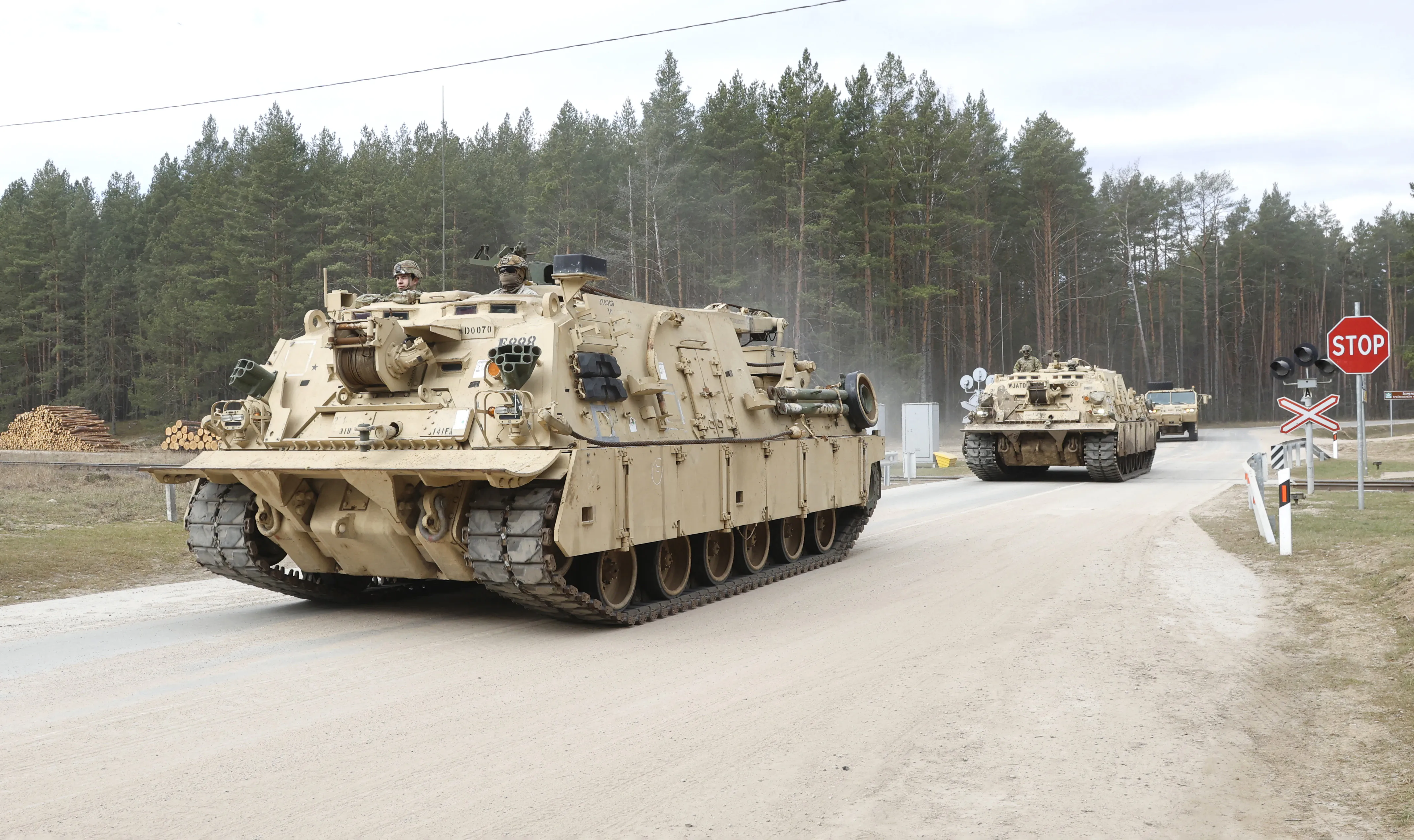The House Armed Services Committee, during a hearing on Tuesday, assessed the United States’ military presence in Europe and its broader strategic posture, amid the ongoing war between Russia and Ukraine.
Republican and Democratic lawmakers expressed concern about Russia’s military ambitions, its expanding relationships with China, Iran, and North Korea, and the potential impact of reducing the U.S. footprint in Europe.
Katherine Thompson, performing the duties of Assistant Secretary of Defense for International and Security Affairs, referenced President Donald Trump’s position on U.S. strategy in Europe.
“When the Cold War ended, and as it did, our NATO allies forgot how important it was to invest in their defense. Instead, they grew accustomed to the peace,” she said, adding that “President Trump has directed the Department of Defense to put America’s interests first.”
However, General Christopher Cavoli, Commander of U.S. European Command (EUCOM) and Supreme Allied Commander Europe (SACEUR), described Russia as “a growing threat” that has shown a clear willingness to use military force to pursue its geopolitical goals.
“They have very extensive modernization plans and expansion plans. The Russians, about a year and a half ago, announced their intention to grow their armed forces to 1.5 million, up from 900,000—a significant increase—to establish new commands, especially in the ground forces in the northeastern part of Europe that is on the border of NATO with Finland and the Baltics,” Cavoli said.
Chairman Mike Rogers (R-Ala.) said that “Putin only respects strength,” calling the Russian leader an “unreformed KGB agent” with ambitions to restore influence over former Soviet territories.
He criticized past and current administrations for “not having a plan to end the war” and voiced strong opposition to the possibility of the United States relinquishing its role as NATO’s top military commander, warning it would signal weakness to both allies and adversaries.
Similarly, Rep. Adam Smith (D-Wash.) emphasized the importance of continued U.S. support for Ukraine, rejecting arguments that seek to minimize or explain away Russian actions.
“We must stick with Ukraine to stop Putin’s invasion in its tracks and force him to the table,” Smith said. He criticized previous policies that he believes undermined Ukraine, including delays in security assistance and intelligence sharing.
“We should stand with Europe, not with Russia and Putin,” Smith added. “Russia is partnering with Iran, North Korea, and China.”
Ukraine was a key topic throughout the hearing, with Cavoli reporting that more than half of Russia’s conventional ground forces have been destroyed since the start of the conflict, but acknowledging that Russia has made significant progress in reconstituting its military capabilities.
Thompson stated that the current administration’s goal is to facilitate a peaceful resolution to the conflict. She added that both Ukraine and Russia are engaged in early-stage peace negotiations, though multiple lawmakers challenged her claim of a “cease-fire,” citing continued Russian strikes.
Concerns were raised about a potential reduction in U.S. military posture in Europe. Answering questions, Thompson cited an ongoing Pentagon review of troops in Europe and said “no decisions have been made,” adding that the United States won’t be giving up the SACEUR role.
Cavoli cautioned that changes to the current U.S. military configuration in Europe would "increase the amount of time it took to respond" in the event of a crisis or potential conflict with Russia.
The hearing also covered Russia’s development of advanced military technologies, including cyber and space capabilities. Cavoli noted that Russian cyber efforts target both infrastructure and public discourse. He emphasized the importance of intelligence sharing with European allies and Ukraine, calling it a vital aspect of operational planning.
On the question of what “victory” looks like in Ukraine, Cavoli said, “The first step is Ukraine not losing.” Beyond that, he added, it becomes a question of what territory is realistically reclaimable.
Lawmakers also discussed allied defense spending and burden-sharing. Thompson reiterated the U.S. administration’s call for NATO allies to meet or exceed 5 percent of GDP in defense spending, a target introduced by Trump.
“America values partners who step up and pull their weight,” she said.
Despite differences over specific policies, committee members largely agreed on the importance of a strong NATO alliance and sustained U.S. presence in Europe to deter future Russian aggression.
“Our allies want American leadership,” Cavoli said. “From our perspective, we gain quite a bit of influence from it. I have a very loud voice inside Europe as a result of my position. And I think those are to our advantage.”

